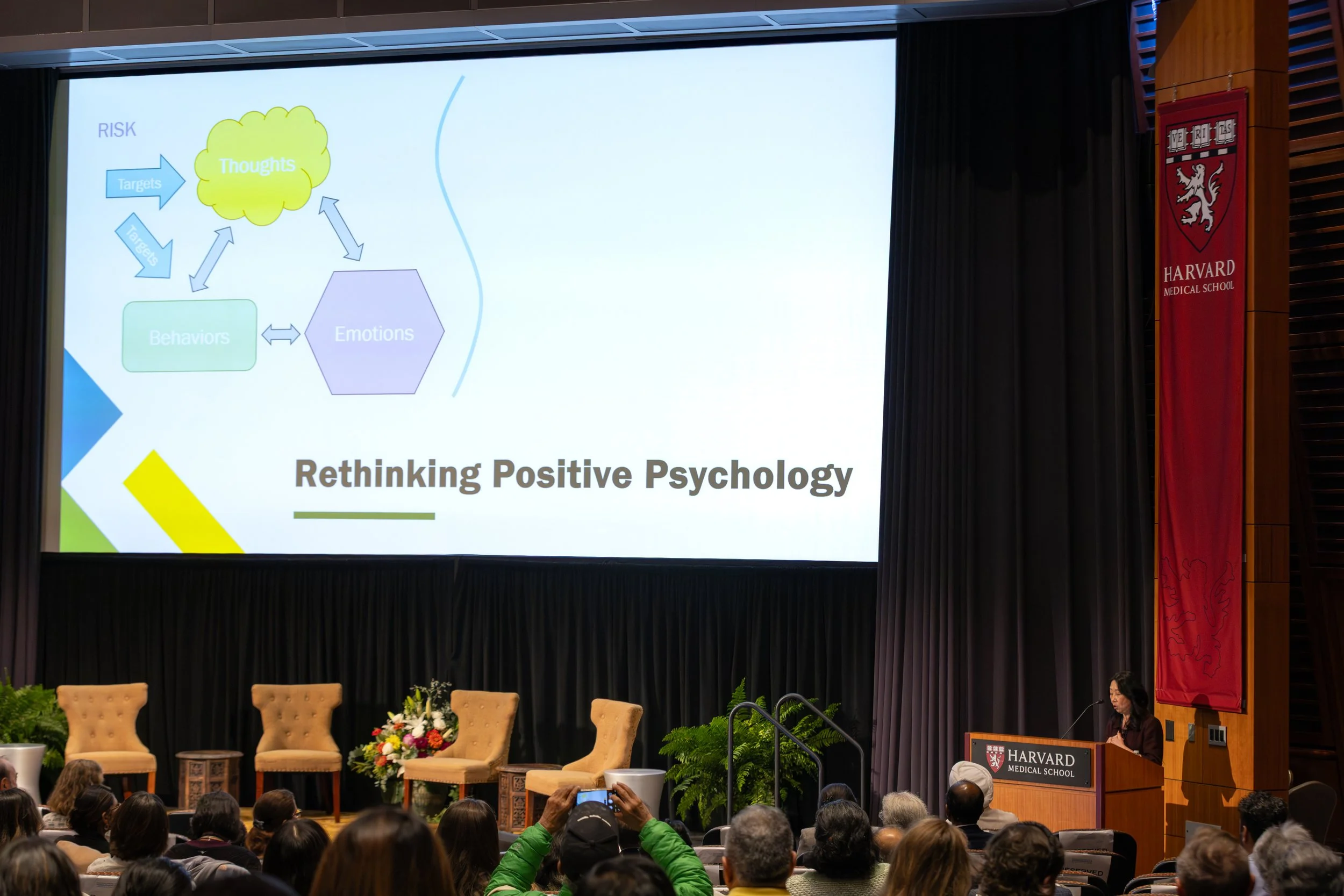
Skills to Enhance Positivity (STEP) Lab /
Skills to Enhance Positivity (STEP) Lab /
Ever notice how easy it is to replay that disheartening moment from your day … and to forget the part where someone smiled at you or where you finally checked something off your list? Our brains are wired to focus on what’s wrong, not what’s going well. But science shows that when you do pay attention to the positive, even briefly, it actually feels ... good. And if you find ways to keep shifting your attention to the positive, over time, those small moments can add up to something powerful.
That’s where we come in. We develop brief programs that focus on bite-sized exercises to help you shift your attention to the positive – not by ignoring the hard stuff, but by also making room for the good. We also use technology to help you bring these practices into your daily life more consistently, helping you build “muscle memory” for noticing what’s good. We’ve scientifically tested this approach and seen that it it has led to real improvements in people’s lives, from reducing suicidal behavior in teens to improving depression in young adults. Now, we’re working to bring these tools to more people, in more settings.
Our work also focuses on creating programs that help people experience a full range of emotions. Research shows that being open and non-reactive to all emotions – even the difficult ones – can support mental health and well-being. That’s why our programs integrate practices like yoga and mindfulness to help people of all ages recognize, experience, and accept their emotions, rather than avoid or suppress them. These approaches help build emotional awareness and flexibility, contributing to psychological resilience.
What We Do
Our Partners
Ongoing Studies
Promoting Positive Affect to Reduce Suicide Risk
Our research group has found that low positive affect is a strong predictor of future suicidal behavior. Enhancing positive affect can foster psychological flexibility and buffer against the impact of stress. Because cultivating openness to positive emotions and experiences can take time, effort, and practice, we developed a brief positive affect intervention (Skills to Enhance Positivity, aka STEP), supplemented with text messaging, that may reduce suicide risk and depression.
Yoga-Based Interventions to Reduce Depression Symptoms
Yoga is an ancient practice from India that combines physical, mental, and spiritual elements, and has been shown to benefit physical and mental health. Treatments incorporating yoga (Yoga-Based Interventions) have shown promise for reducing depression in adults, but whether it does so in teens has not yet been rigorously examined. We are in the process of addressing this gap.






